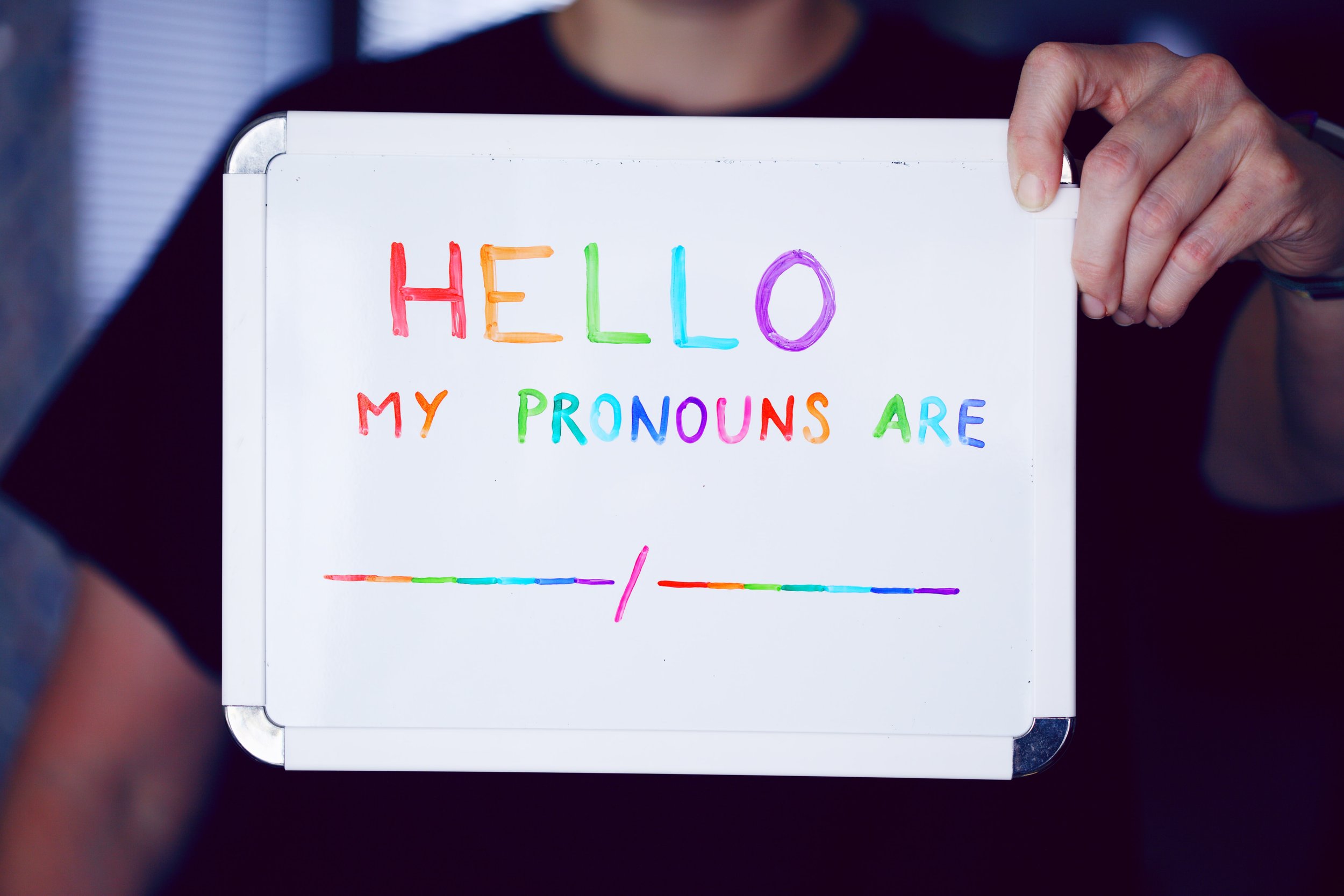
5 July 2022
|Discrimination
Religious / Philosophical Belief
Blogs
Christian doctor not discriminated against for refusing to address transgender people by their chosen pronoun
In Mackereth v DWP [2022] EAT 99, Mrs Justice Eady and the Employment Appeal Tribunal (EAT) panel dismissed a claimant’s appeal against a first-instance tribunal’s finding that the claimant had not been discriminated against for holding gender critical views. Applying Forstater v CGD ([2021] UKEAT/0105/20/JOJ), the EAT found that on several occasions the Employment Tribunal had erred in applying the Grainger v Nicholson ([2009] UKEAT/0219/09/0311) criteria. The EAT nonetheless upheld the tribunal decision and dismissed the appeal based on the tribunal’s factual findings.
In Forstater v CGD [2021] UKEAT/0105/20, the EAT, upheld an appeal against an Employment Tribunal decision that found that the gender critical views of the claimant, Ms Maya Forstater, were not protected beliefs. The Employment Tribunal did so on the rationale that the beliefs did not meet the fifth limb of the ‘Grainger test’; specifically, that her views on gender were not worthy of respect in a democratic society. On appeal, the Employment Appeal Tribunal overturned this determination, finding that Ms Forstater’s views were worthy of respect in a democratic society, and remitted the case back to the Employment Tribunal to proceed with determination of the discrimination claim.
In Grainger v Nicholson [2009] UKEAT/0219/09/0311, Mr Justice Burton set out a five-part test to determine whether a religion, philosophical belief or lack of belief would be protected from discrimination under section 10 of the Equality Act 2010. The five parts of the test were;
(i) The belief must be genuinely held.
(ii) It must be a belief and not … an opinion or viewpoint based on the present state of information available.
(iii) It must be a belief as to a weighty and substantial aspect of human life and behaviour.
(iv) It must attain a certain level of cogency, seriousness, cohesion and importance.
(v) It must be worthy of respect in a democratic society, not be incompatible with human dignity and not conflict with the fundamental rights of others.
In this case, Dr Mackereth had three main beliefs or lack of belief that he sought to have the Employment Tribunal rule as protected by section 10 of the Equality Act 2010. They were;
(A) A belief in the truth of Genesis 1:27 (“So God created man in his own image, in the image of God he created him; male and female he created them”), and as a result a person cannot change their sex/gender “and attempting to do so is pointless, self-destructive and sinful”
(B) A lack of belief in “transgenderism” and “gender fluidity” such that he does not believe (i) a person can change sex/gender, (ii) that “impersonating” the opposite sex may be beneficial for a person’s welfare, or (iii) that society should accommodate/encourage such “impersonation”, and,
(C) A belief that it would be irresponsible and dishonest for a health professional to accommodate/encourage a patient’s “impersonation” of the opposite sex
At first instance, the Employment Tribunal found that the claimant’s beliefs did not meet the Grainger criteria. Specifically, that beliefs B(ii) and (iii) and C did not meet Grainger criteria (ii), (iii) and (iv) (belief not a viewpoint, belief as to a weighty and substantial aspect of human life, must obtain a level of cogency, seriousness, cohesion and importance). The Employment Tribunal also found that none of the claimant’s beliefs, (A) – (C), were compatible with Grainger (v) (belief worthy of respect in a democratic society, not incompatible with human dignity and not conflict with the fundamental rights of others). However, the Employment Tribunal also found that even were his beliefs protected, as a factual matter he did not suffer any acts of less favourable treatment or harassment and therefore had not been discriminated against under section 13 (direct discrimination) and section 26 (harassment). In relation to section 19 (indirect discrimination), the court found that the respondent had made out its defence that its policy was a proportionate means of achieving a legitimate aim under section 19(2)(d) of the Equality Act.
It could be kept in mind that this first instance ruling was made in 2019, before the EAT made its findings in the Forstater appeal. In this case, the Employment Appeal Tribunal found the Employment Tribunal erred significantly in its approach to the claimant’s beliefs and lack of beliefs. It found the tribunal erred in finding that beliefs (B)(ii), (iii) and (C) did not relate to a weighty and substantial aspect of human life (Grainger (iii)). The EAT also found the tribunal had erred in failing to engage with the fact that the case as pleaded partially as one of lack of belief, to which the Grainger criteria do not apply (Forstater [2021] UKEAT/0105/20/JOJ para 109 applied). The EAT did agree that given the way the beliefs were pleaded the tribunal was correct in its finding it did not meet the Grainger (iv) threshold, but fundamentally incorrect in respect of finding they did not surmount the the Grainger (v) threshold regarding beliefs that are worthy of respect in a democratic society.
Mrs Justice Eady conducted a substantial review and recapitulation of Forstater, Grainger and other cases in that line of jurisprudence, and despite finding significant error on the part of the Employment Tribunal, it nonetheless ruled there was no basis to challenge the Employment Tribunal’s factual finding in the alternative that the claimant had not suffered any acts of less favourable treatment or harassment, that the claimant’s beliefs were not the reason for the respondent’s conduct, and that it was entitled to draw a distinction between the belief and the way the claimant wished to manifest that belief (Page v NHS Trust Development Authority [2021] EWCA Civ 255 applied). For those reasons, the appeal was dismissed and the first instance judgment upheld.
The practical implications of this case are that cases involving section 10 gender critical discrimination claims are likely to be highly fact sensitive, as indeed this case was to the particular circumstances of the patients this doctor served under his contract of employment, and the impact on clients of the service. It may also be significant that it appears the claimant did not make any substantial attempt to seek adjustments to cater to his beliefs and lack of beliefs given it was found it was likely he might only assess a few transgender patients a year, and that the service was considering how it might approach this issue before the claimant absented himself from work before later claiming he had been suspended, and then issuing proceedings.
For these reasons, it is important to look carefully at the factual circumstances of the case, the nexus between the beliefs, the manifestations and any less favourable treatment and any proportionate means and legitimate aims pleaded by the respondent, in determining the case’s prospects and merits.
The cases referenced above are linked below;
Forstater v CGD ([2021] UKEAT/0105/20/JOJ)
Grainger Plc v Nicholson [2009] UKEAT/0219/09/0311
Page v NHS Trust Development Authority [2021] EWCA Civ 255
7th July, 2022, Update: In a significant development related to the casenote above, Ms Maya Forstater, in the case Forstater v CGD Europe & Ors (Case number: 2200909/2019), has been successful in her discrimination claim against the CGD Europe and the Center for Global Development (the American parent organisation of CGD Europe).
Ms Forstater claimed that the first respondent, with whom she was a tax consultant, had denied her employment opportunity relating to a new, permanent role because of her protected gender critical beliefs. Specifically, the tribunal found Ms Forstater had been discriminated against when she was excluded from consideration for a permanent employment contract because of her gender critical beliefs, and when was not invited back as a visiting fellow because of her gender critical beliefs.
They also found that Ms Forstater had been victimised by the removal of her profile from the website because she had done a protected act under section 27 of the Equality Act.
A link to the Employment Tribunal judgment can be found here;
Forstater v CGD Europe & Ors case (Case number: 2200909/2019)









